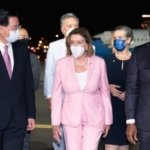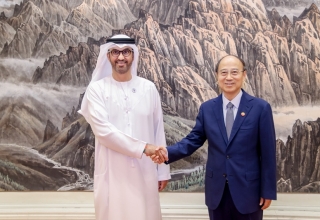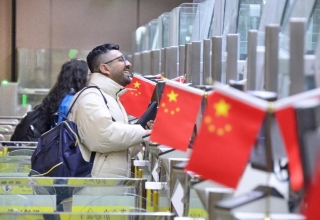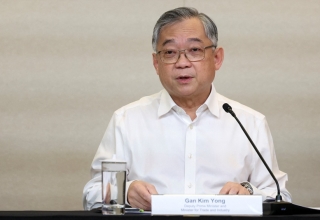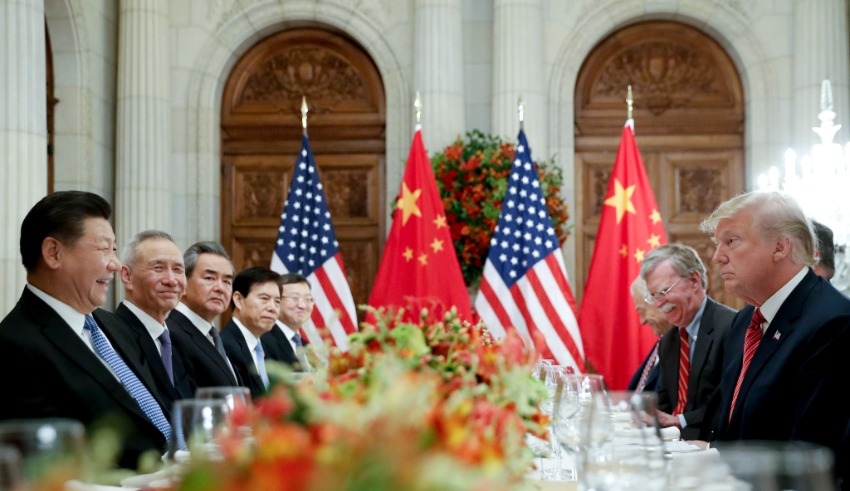
The fact that China has decided to stop having bilateral climate change negotiations with the United States has put a shadow of uncertainty over whether or not the world will be able to muster enough ambition to combat global warming in time to avoid the worst of its effects.
The fight against climate change has been a primary focus of collaboration between the world’s two most powerful economies and the two nations that produce the most greenhouse gases.
As part of China’s intensifying retribution over US House of Representatives Speaker Nancy Pelosi’s visit to Taiwan, China has postponed talks on the subject less than 100 days before the next historic international climate meeting, COP27. The summit is scheduled to take place in Poland in December.
“No government should defer progress on existential transnational issues because of bilateral differences,” stated John Kerry, the former Secretary of State of the United States and the current senior climate diplomat for the Biden administration. Kerry is presently serving in this role.
He stated that by suspending collaboration, not only would the United States be punished, but so would the rest of the world, particularly the developing nations.
Even as tensions have increased over other concerns, such as human rights, forced labor, Hong Kong and Taiwan sovereignty, and trade, the United States and China have continued to view climate change as a potential area of cooperation. This has been the case over the course of the past few years.
Related Posts
In the months leading up to the COP27 United Nations climate summit, which will take place in Egypt in November, officials from the United States and China have begun to increase their level of participation on climate concerns.
Pelosi’s brief visit to Taiwan this week, which China claims as its own but is self-ruled, incensed Beijing and spurred Chinese military maneuvers on an unprecedented scale in the seas and air around the island. These drills were in response to Pelosi’s visit.
Previous collaboration between the two nations on the topic of climate change helped pave the way for the Paris Climate Agreement in 2015 and rekindled floundering worldwide climate negotiation in Glasgow in 2021.
According to analysts, a lack of engagement between the world’s two superpowers could derail climate negotiations and dampen ambition on the part of other countries. This is especially concerning in light of the fact that some countries have reneged on the emission reduction pledges they made in Glasgow.
Bernice Lee, the executive director of the Centre for Sustainable Resource Economy at Chatham House, expressed concern that “the tension between the United States and China could become an excuse for those countries that are unwilling to step up. The fear is that the US-China tension could become an excuse for those countries.”
She stated that “it is undoubtedly important that the international community – especially vulnerable developing countries – continue making sure that large emitters continue to achieve what they promised. It is important that large emitters continue to deliver what they promised,” she said.
John Kerry, the United States’ Special Envoy to the United Nations Framework Convention on Climate Change, stated on numerous occasions that the United States and China are capable of isolating climate change as a topic for joint discussion given the global significance of the issue without becoming entangled in other complex issues.
According to Thom Woodroofe, a fellow at the Asia Society Policy Institute, “by letting geopolitics now be the tail that wags the climate dog, it represents a shift in Beijing’s approach.” Beijing has gone from seeing the merits of allowing climate to be a standalone ‘oasis’ in the relationship to instead succumbing to those thinking purely through a geopolitical prism. This shift in Beijing’s approach represents a shift in Beijing’s approach.”
Despite the diplomatic lull, China may be compelled to continue addressing some of its emissions due to pressure from within the country. Analysts believe that China could move forward with a strategy to reduce its methane production, for instance. The country’s massive coal mines are the source of a significant portion of the country’s methane emissions.
According to Joanna Lewis, a professor of energy and environment at Georgetown University, “there is a great effort right now by policymakers in China to come up with a domestic plan to control methane emissions.” In other words, the Chinese government is currently making a “major effort.”
“Even if international participation on this topic comes to a pause, this domestic war on methane is not going to come to a halt since it is very much a part of China’s strategic plan to limit emissions,” said one expert. “This war on methane is not going to come to an end.”
Others have pointed out that the break in negotiations may only be a temporary measure, and that despite years of deteriorating relations between the two countries, the United States and China continue to work together.
Alden Meyer, a senior associate at the consultancy E3G, noted that this partnership “has always been an up-and-down one.”
“I believe the issue that needs to be asked here is whether this is a short-term tactical maneuver by Beijing in an effort to catch the attention of Washington, or whether this is part of a larger, longer-term strategic adjustment by China?”

